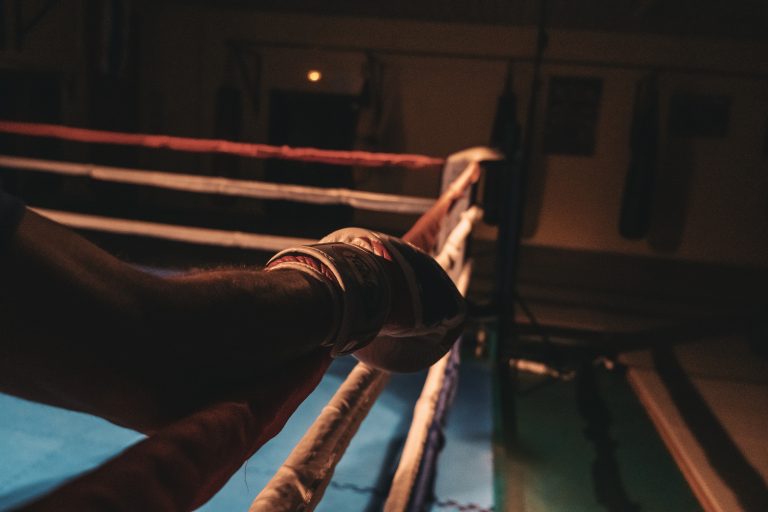What Does Karate Do for a Child?
Karate is a form of martial art that teaches individuals how to defend themselves using their hands and feet. It is a popular sport that is enjoyed by people of all ages. In recent years, karate has become a popular activity for children. Parents are now enrolling their kids in karate classes to help them develop self-defense skills, self-confidence, and discipline. Here are some of the benefits of karate for children:
1. Develops Self-Defense Skills
One of the most significant benefits of karate for children is that it helps them develop self-defense skills. In karate classes, children learn how to defend themselves from attackers using their hands, feet, and other parts of the body. They also learn how to identify dangerous situations and avoid them. By learning karate, children can feel more confident and safe, knowing that they have the skills to defend themselves if needed.
2. Builds Confidence and Self-Esteem
Karate can also help children develop confidence and self-esteem. As they learn new techniques and improve their skills, children start to believe in their abilities. They also gain a sense of accomplishment from mastering new skills, which can help boost their self-esteem. Karate also teaches children to be humble and respect others, which can help them build positive relationships with their peers.
3. Promotes Discipline and Focus
Karate classes require a high level of discipline and focus. Children have to follow a set of rules and regulations to be successful in karate. They learn to respect their instructors and classmates, pay attention to instructions, and work hard to achieve their goals. This discipline and focus can translate to other areas of their lives, such as school, sports, and relationships.
4. Improves Physical Fitness
Karate is a physically demanding sport that requires strength, endurance, and flexibility. Children who practice karate get a great workout that can help them improve their overall fitness level. They also develop hand-eye coordination, balance, and agility, which can help them excel in other sports.
5. Teaches Patience and Perseverance
Karate is not an easy sport to master. It takes time, patience, and perseverance to develop the necessary skills. Children who practice karate learn the importance of hard work and dedication. They also learn that it is okay to fail and make mistakes as long as they keep trying.
In conclusion, karate is an excellent activity for children. It helps them develop self-defense skills, confidence, discipline, focus, physical fitness, patience, and perseverance. Karate is a fun and rewarding sport that can have a positive impact on a child’s life. If you are looking for a way to help your child develop these skills, consider enrolling them in a karate class.
What Does Karate Do for a Child? Frequently Asked Questions
If you are considering enrolling your child in martial arts, specifically karate, you likely have several questions about how it can benefit them. Karate is an excellent physical activity that helps children improve their fitness levels, learn self-defense, and boost their mental health. Moreover, some parents enroll their child in karate classes to help them develop valuable life skills, such as discipline and respect. In this article, we will answer some of the most frequently asked questions about what karate can do for your child.
1. Can Karate Help My Child Develop Self-Discipline?
One of the most significant benefits of karate is that it can help your child develop self-discipline. Karate classes teach children to listen to instructions carefully, follow rules, and remain focused during practice. The structured environment of karate classes helps children learn how to become responsible for their actions and develop strong self-discipline habits.
2. Will Karate Classes Help My Child Develop Confidence?
Yes! Karate classes can help children develop confidence in their abilities. As children learn new techniques and combinations, they get a sense of accomplishment, and their self-confidence increases. Additionally, practicing karate can help children develop physical strength and coordination, improving their confidence not only in martial arts but also in other activities.
3. Can Karate Help My Child Manage Their Emotions?
Yes! Many parents enroll their children in karate classes to help them learn how to manage their emotions. Karate helps children learn new coping mechanisms that they can use to manage difficult emotions like anger, frustration, and anxiety. Through karate, children develop mindfulness and self-awareness, which can help them regulate their emotions more effectively outside the dojo.
4. Will Karate Classes Teach My Child Self-Defense?
Yes! Karate is an excellent activity for children to learn self-defense. Karate classes teach children a range of techniques to protect themselves from physical harm, including strikes, blocks, kicks, and throws. Children will also learn how to avoid dangerous situations and protect themselves from attackers.
5. How Can Karate Benefit My Child’s Physical Health?
Karate is a full-body workout that can help children improve their physical fitness levels. Children will gain strength, speed, and agility as they practice their techniques, and they will also improve their coordination and balance. Additionally, karate can help children maintain a healthy weight and reduce their risk of developing chronic illnesses like diabetes and heart disease.
6. Will My Child Make Friends in Karate Classes?
Yes! Karate classes are an excellent place for children to make new friends. Through the shared experience of learning and practicing martial arts, children will develop strong relationships with their peers. Karate classes also provide a supportive environment where children can encourage and motivate each other to do their best.
7. Can Karate Help My Child Develop Respect for Others?
Yes! Karate classes help children develop respect for others in several ways. Firstly, students learn to follow the rules of the dojo and show respect to their instructors. They also learn to respect their training partners and treat them with kindness and consideration. Furthermore, karate helps children develop an understanding of the value of discipline and hard work, which can help them develop respect for themselves.
8. Is Karate Safe for Children?
Yes! When taught by a qualified and experienced instructor, karate is a safe and rewarding activity for children. Instructors are trained to teach children in a way that ensures their safety, and they will provide appropriate supervision during classes. Additionally, children will learn how to practice karate in a safe and controlled environment, reducing the risk of injury.
In How to Enroll Your Child in Karate Classes
Karate is a form of martial arts that has been practiced for centuries. It teaches physical and mental discipline to those who practice it. As a parent, you may be considering enrolling your child in karate classes. This guide will walk you through the steps of enrolling your child in karate classes, as well as the benefits of practicing karate.
Step 1: Research Martial Arts Schools in Your Area
The first step in enrolling your child in karate classes is to research martial arts schools in your area. Look for schools that specialize in teaching karate to children. You may want to ask for recommendations from friends or family members, or search online for reviews of local schools.
Step 2: Schedule a Visit to the School
Before enrolling your child in karate classes, it is important to schedule a visit to the school. During the visit, you can observe a class in progress, meet the instructors and staff, and ask any questions you may have about the program. This will help you determine if the school is a good fit for your child.
Step 3: Discuss Your Child’s Goals with the Instructors
Once you have selected a martial arts school, it is important to discuss your child’s goals with the instructors. This will help them to design a program that is tailored to your child’s needs. Let the instructors know if your child is interested in competition, self-defense, or simply learning the basics of karate.
Step 4: Purchase the Necessary Equipment
Before your child can start taking karate classes, they will need to have the necessary equipment. This typically includes a uniform (known as a gi), a belt, and protective gear such as gloves and shin guards. The martial arts school will provide you with a list of required equipment.
Step 5: Attend Your Child’s First Class
On the day of your child’s first class, make sure they arrive on time and in their uniform. You may want to stay and observe the class, or you may decide to drop your child off and come back later. Make sure your child knows where to go and who to speak to if they need help.
The Benefits of Karate for Children
In addition to the physical benefits of karate (such as improved strength, flexibility, and coordination), there are many mental and emotional benefits as well. Here are just a few of the ways that karate can benefit your child:
1. Improved Confidence and Self-Esteem
Karate teaches children to believe in themselves and their abilities. As they progress through the ranks, they gain a sense of accomplishment and pride that can translate into improved confidence and self-esteem in other areas of their life.
2. Increased Focus and Concentration
Karate requires a great deal of focus and concentration. As children learn new techniques and movements, they must stay focused on their goals and pay attention to the smallest details. This can help them develop better focus and concentration in other areas of their life, such as schoolwork.
3. Better Self-Discipline and Control
Karate is a highly disciplined practice that teaches children the importance of self-control and respect for authority. Children learn to listen to their instructors and follow directions, which can translate into improved behavior at home and in the classroom.
4. Improved Social Skills
Karate classes provide a supportive and structured environment for children to socialize and make friends. They learn to work together with others and to respect the differences of those around them. This can help children develop better social skills and make lasting friendships.
Conclusion
Enrolling your child in karate classes can have a positive impact on their physical, mental, and emotional well-being. By following the steps outlined above, you can help your child get started on their karate journey and reap the many benefits of this ancient martial art.
Inhaltsverzeichnis






